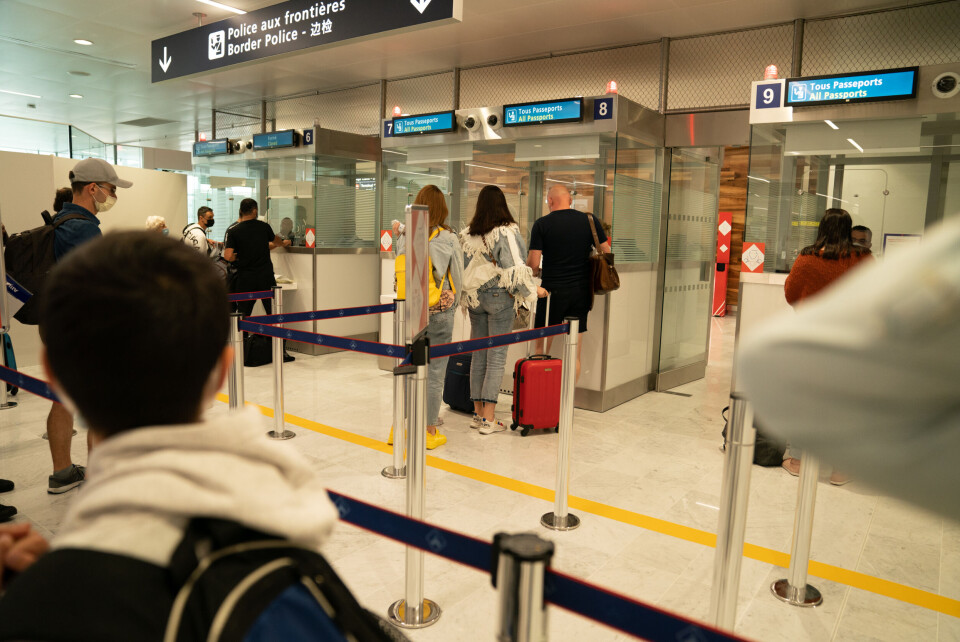-
White storks make strong return in France via nest ‘platforms’ and clipped wings
The Ligue pour la Protection des Oiseaux shares the conservation challenges in saving these birds from extinction
-
Hosting scheme in south-west France lets newcomers sample lifestyle
Households in nine Dordogne communes volunteer under Mes Nouveaux Voisins scheme
-
French boulangeries demand right for staff to work on May 1 so they can open
Artisan bakery owners can work but employees cannot, while certain industrial bakeries are allowed to remain open with workers
Visiting France for six months: French long stay visa VLS-T explained
We look into the ‘visa de long séjour temporaire’ (VLS-T) that allows you up to six months in France - how and when to apply and what health cover you need

Second-home owners living in the UK have raised questions about obtaining a visa de long séjour temporaire (VLS-T) so as to be able to visit France for up to six months.
This is as opposed to being limited to the Schengen area rule for non-EU citizens of a maximum 90 days’ stay in any rolling 180-day period. We look at some of the issues.
How long in advance should you apply?
You can only submit an application for a visa within 90 days of the intended start of your trip.
The official visa website says you should apply at least 20 working days before you wish to travel.
We recommend, based on reader experience, allowing at least this, and more if possible.
Once you have applied, you need to visit the website of TLS Contact, a body contracted by the French consular services in the UK to help with application processing, to book an appointment to take in various supporting documents.
The official visa website says it takes “in general, two to 15 days to process the application” once the TLS contact has passed the dossier on to the consulate.
Confusingly, TLS Contact recommends starting the whole process “at least 20 calendar days before the first available appointment at our centre”.
However, you cannot check for appointments until you have submitted your application on the visa site.
Is there a limit on how often you can visit France on a VLS-T?
The current rule applied by the French consular services in the UK is that a new VLS-T cannot start its validity period until at least six months after the expiry of the previous one, which will typically be 12 months from the start of the previous one’s validity period.
In other words, you can only have around one of these per year.
Note that any period under a visa is not counted for purposes of the 90/180-day rule, so periods under each system can be combined in the same year.
Take outstanding questions to visa appointment
The consular service did not, however, respond to requests for confirmation of general rules about combining these, eg. whether you need to enter France in the visa validity period (and not before) to make use of the visa and if you need to leave again at the end, as opposed to staying on under the 90-day rule.
We advise checking during your visa appointment if in doubt about your plans.
You should bear in mind that you should generally avoid spending more than half of the calendar year in France as you risk falling under rules for becoming French tax residents.
What are the healthcare requirements for obtaining a VLS-T?
THE only health requirement being demanded by the French consular services is an Ehic/Ghic travel health card, which UK residents can obtain free of charge.
This should provide cover for any ‘medically necessary’ care during the trip.
The UK government recommends, however, that visitors to France also take out travel insurance, including cover for repatriation in the event of medical emergency or expenses in the event of death, not covered by an Ehic.
Bear in mind that for some healthcare in France, you might need to pay upfront and obtain a reimbursement afterwards.
Also, the Ehic only guarantees cover up to the basic state rates in France, such as 70% of the cost of seeing a GP.
This has not, however, changed since Brexit. Prior to July 2014, the UK would refund the difference, but that was stopped.
Some, but not all, general travel insurance policies will cover the shortfall, so you should check this.
It is also possible to take out a specific comprehensive healthcare policy for the period. You will need to make sure either can cover you for the full period.
Agence AXA International, for example, has a specific travel insurance aimed at visitors to the Schengen area, which covers ‘urgent’ care that cannot wait for you to return, as well as repatriation.
It can be taken out for 90 days, multiple entries of up to 90 days in 180 days, or an annual multi-trip policy, and the latter was previously quoted to us as being €298/year regardless of age.
Generali France’s Agence Eaton and Swiss Life France’s Bordeaux agency have told us they can offer ‘top-up’ health insurance (covering the co-payments) for Britons in France on visas, at variable prices depending on personal factors.
Related articles
‘Stressful, nightmare, positive’: readers describe French visa process
UK nationals may only have one six-month French visa per year
Brexit: If I spend 90 days in France how many days until I can return?
























